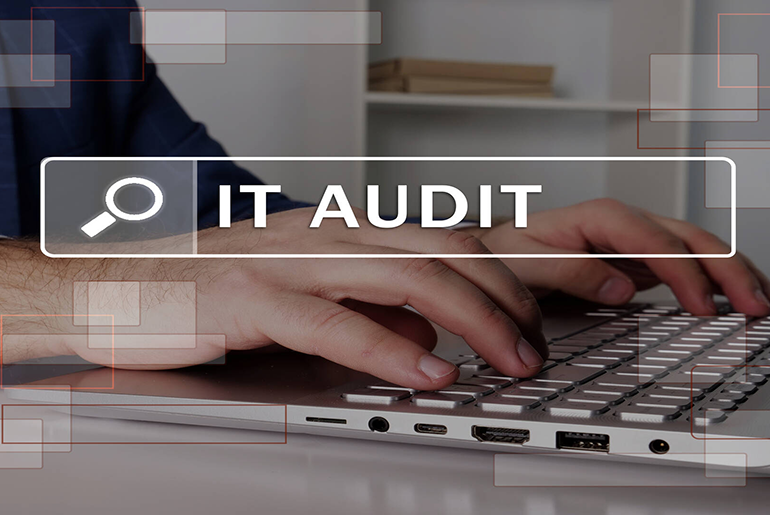What To Expect From An IT Audit
Information technology (IT) is a critical business aspect in the modern digital era when almost everybody uses applications, software programs, and online systems. But there are risks to deploying IT solutions, including cyber vulnerabilities and attacks. For this reason, conducting regular IT audit is a must.

Information technology (IT) is a critical business aspect in the modern digital era when almost everybody uses applications, software programs, and online systems. But there are risks to deploying IT solutions, including cyber vulnerabilities and attacks. For this reason, conducting regular IT audit is a must.
So what is an IT Audit?
IT audits refer to the inspection of information technology hardware and software systems, including policies, workflows, procedures, and tech-related processes. Startups, small-medium businesses, and large enterprises must undergo regular IT audits to protect digital and tech-related assets and align them with company goals.
But what can you expect from an IT audit? Read on below to find out more.
Deep Dive System Checks
Deep dive system checks are essential to identify the best cybersecurity solutions for a company. Moreover, IT teams must tailor these cyber-first tech solutions to a business’s emerging and adjacent needs. That way, business owners and managers won’t waste money investing in ineffective solutions.
Learn more about implementing cyber-first tech solutions at Kmtech.com.au or other similar IT audit service providers.
Here are things to expect in deep dive system checks:
Identify Potential Risks
Expect the main objectives of an IT audit include an in-depth system and process evaluation to secure business data and minimize risks. Therefore, a deep dive system check entails identifying the potential risks to business data assets.
Authentication And Verification
The integrity and reliability of information can directly affect a company’s success. For this reason, all data must undergo a proper verification process to determine compliance with IT standards, policies, and laws. Moreover, IT specialists should look closely to rule out IT system and management inefficiencies.
Business System Activity Review
An IT audit involves assessing the status of data-related and computer-based applications and systems. IT managers and staff review all business system activity levels to ensure efficiency, reliability, functionality, and security.

Creation Of Hardware Inventory
As much as you want to monitor and safeguard your digital assets and software systems, you must include a hardware inventory in your IT audit checklist.
IT managers and staff must do due diligence in creating a comprehensive hardware inventory. They must take note of the age and performance of each computer hardware or device.
Companies should have asset management systems to maintain hardware inventories. By doing so, IT teams can determine if a new hardware purchase is necessary. Generally, hardware systems need replacement every three to five years.
Data Backup Audit
Cybersecurity protection includes auditing data backup and recovery plans. You can’t expect the integrity and security of your data even if you have security features in place. Cybersecurity is rapidly evolving, and hackers and other cybercriminals also discover new ways to steal and ruin your data.
Failure to perform IT system backups properly can result in data corruption, theft, and corruption. Hence, an IT audit must include data backup audits to ensure the optimum performance of the backup program in detecting and resolving tech security anomalies.
Here are the things you can expect in a data backup audit:
- Inspection and backup of all network operating systems (OS), servers, and computers
- Identifying the best location to store backups (such as near a location or offsite)
- Full testing disaster recovery plans for effectiveness and efficiency
- Testing computer operations up to the level necessary
Regulatory Compliance Assessment
Businesses must adhere to cybersecurity and other IT-related laws. They must know what regulatory policies to comply with to avoid jeopardizing their operations, incurring penalties, and facing lawsuits. That’s why regulatory compliance assessment is crucial in every IT audit checklist.
IT auditors must ensure that businesses comply with national data privacy laws and other regulatory requirements. By doing so, companies will have higher trust ratings from customers, generate more traffic and leads, gain more new and loyal customers, and increase sales for long-term satisfactory business revenue.
Here are some examples of regulatory policies and laws that IT auditors must consider in an IT audit:
- General Data Protection Regulation (GDPR) protects consumers in the European Union
- Sarbanes-Oxley Act of 2002 (SOX) for publicly traded companies
- Health Insurance Portability and Accountability Act of 1996 (HIPAA)
Conclusion
IT audits can help gauge a company’s security and overall business health. Knowing what to expect from an IT audit can better prepare a company to safeguard its assets using proven-effective approaches and technologies. Therefore, it’s a must to work with an IT security company that can provide accurate and reliable IT audit services and related tech solutions to protect data assets and overall business success.
